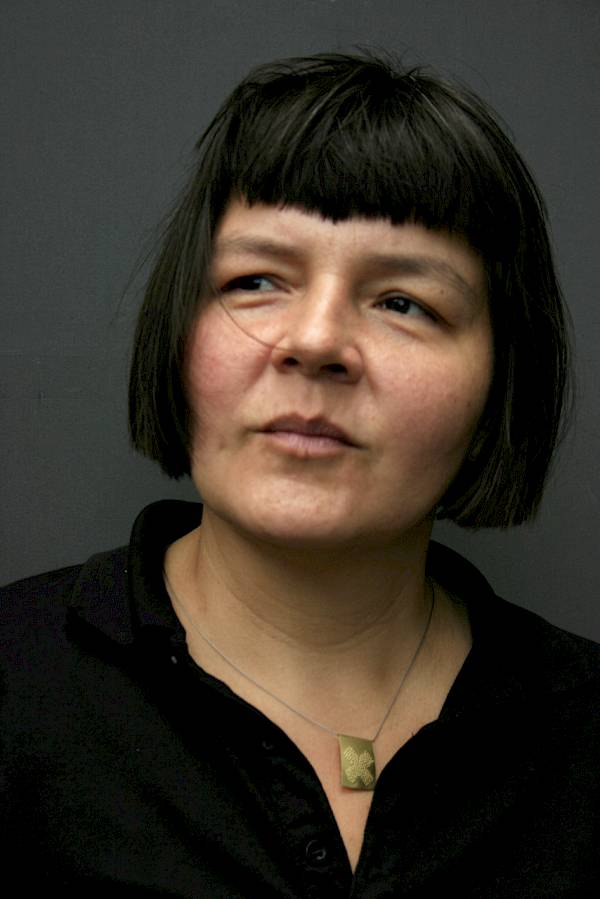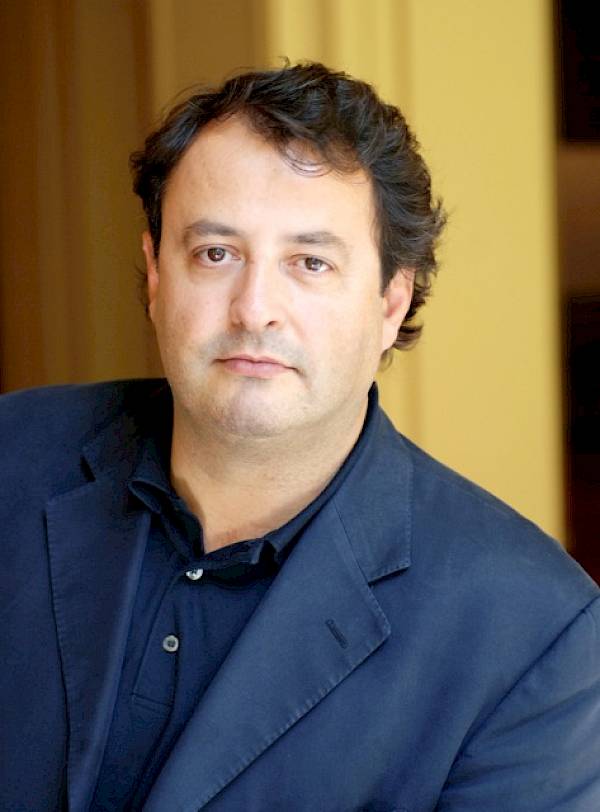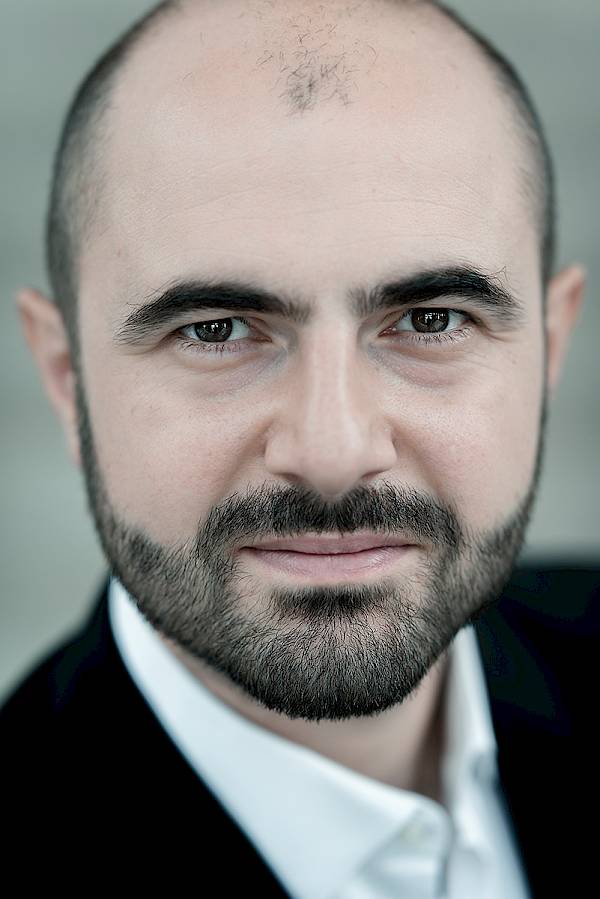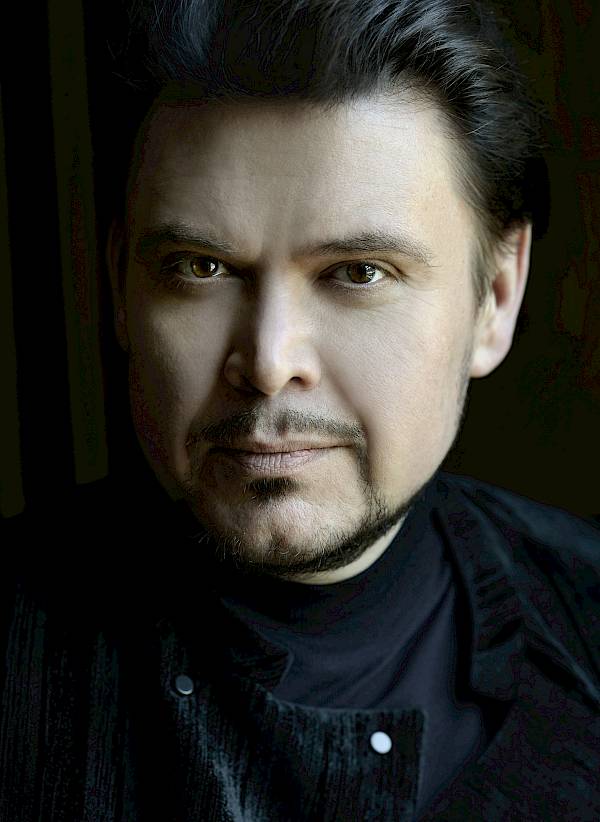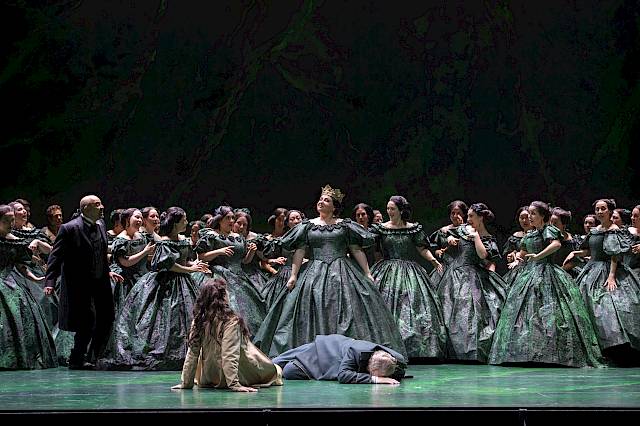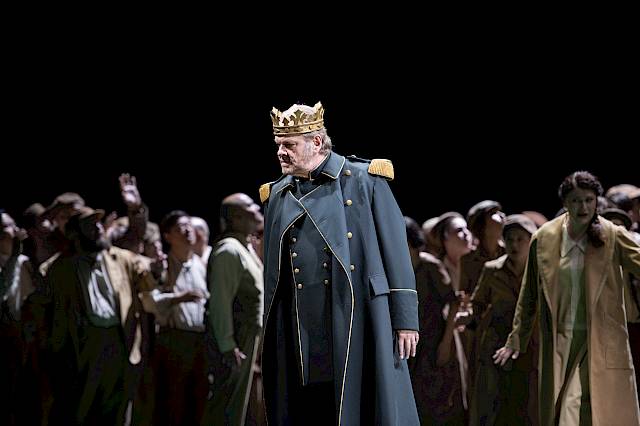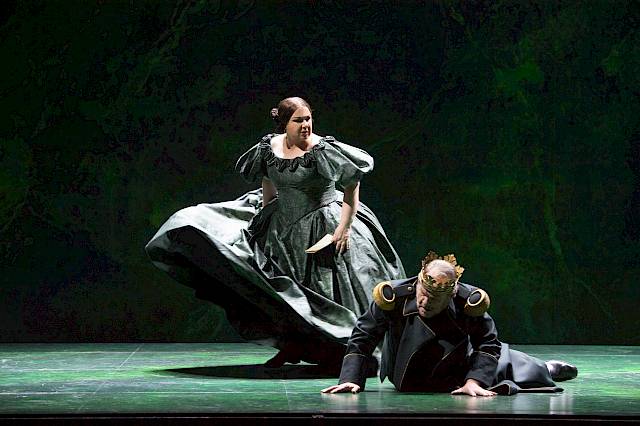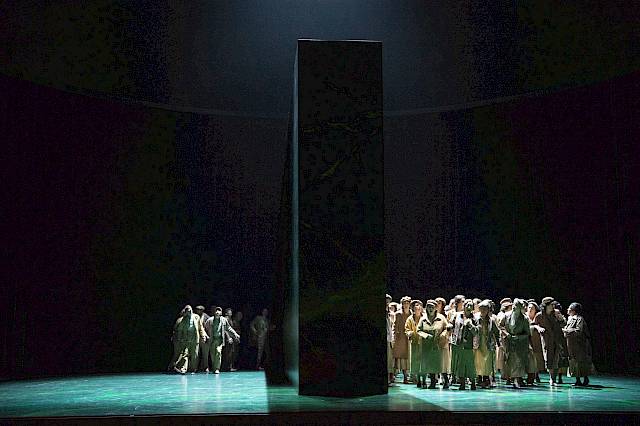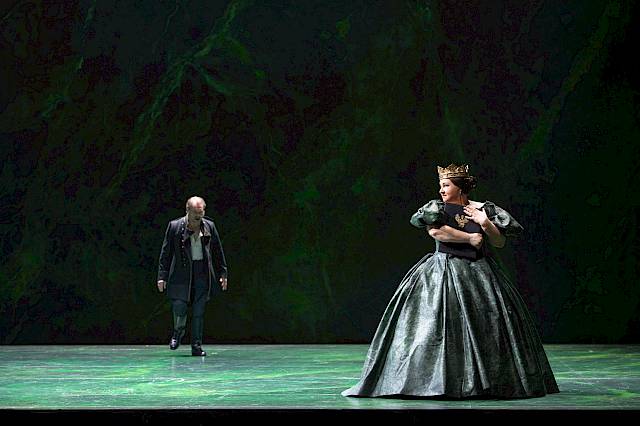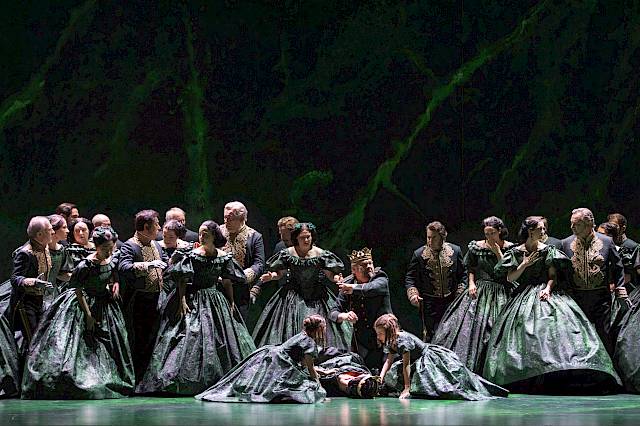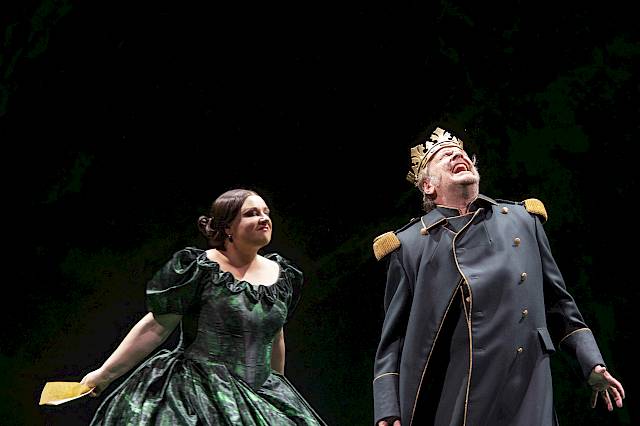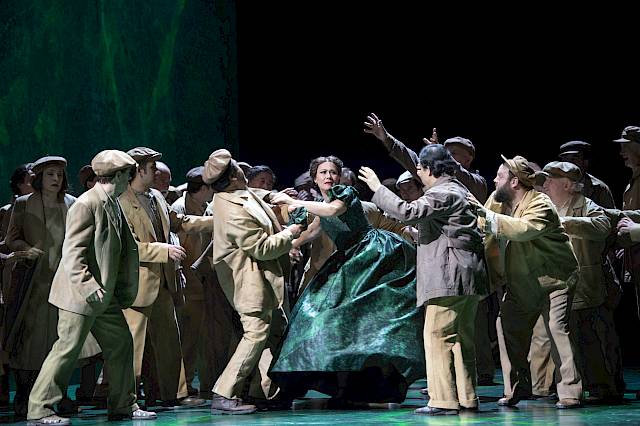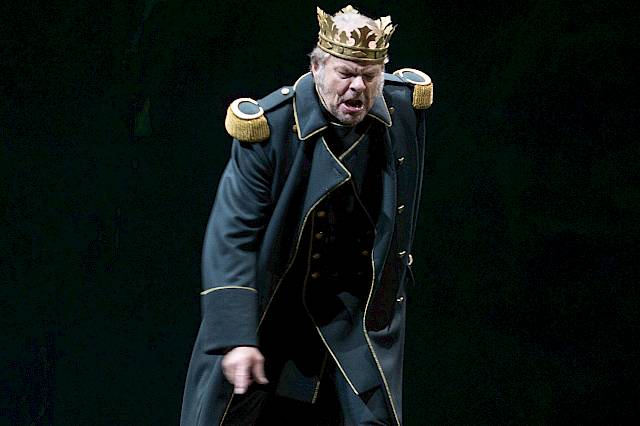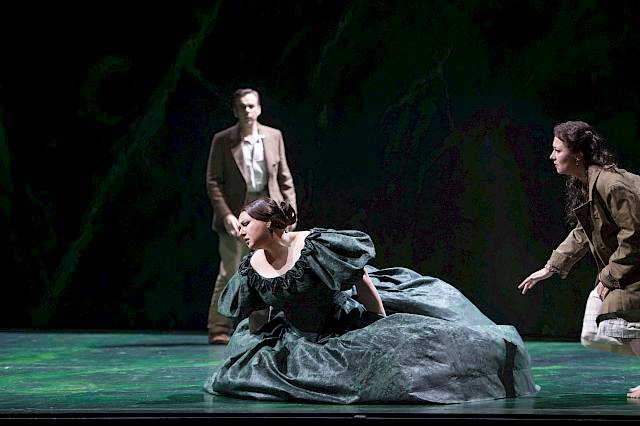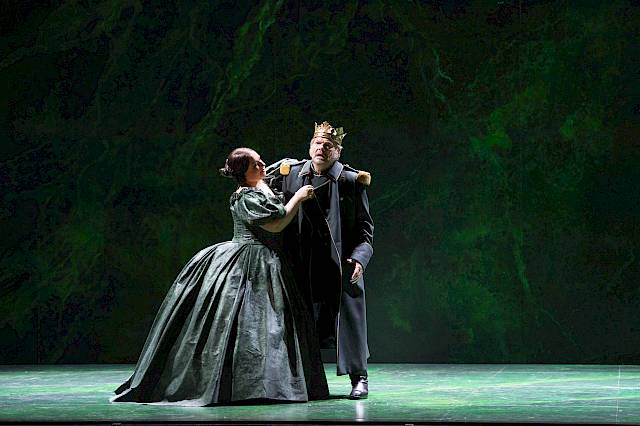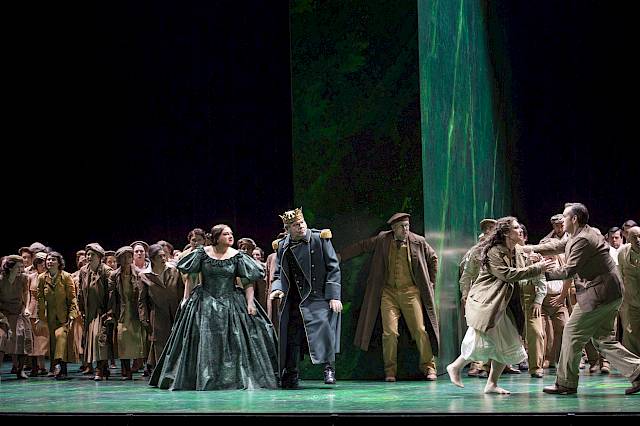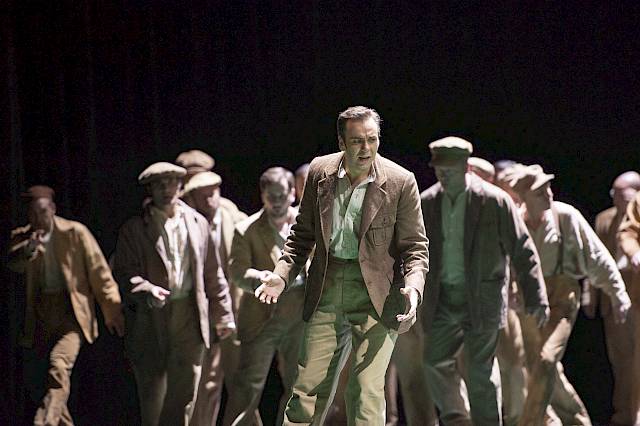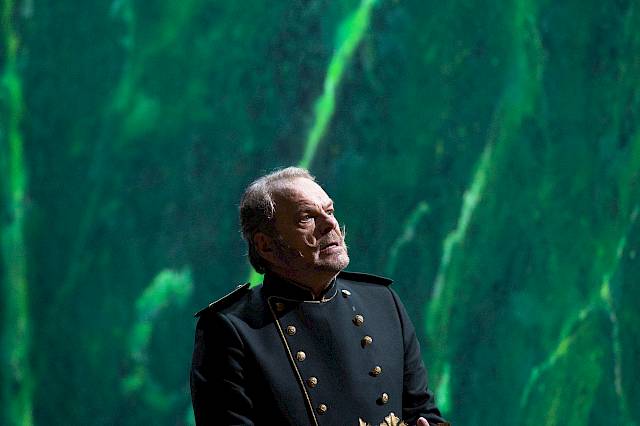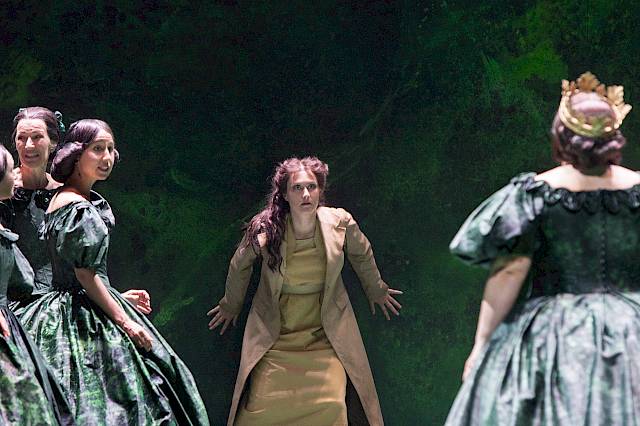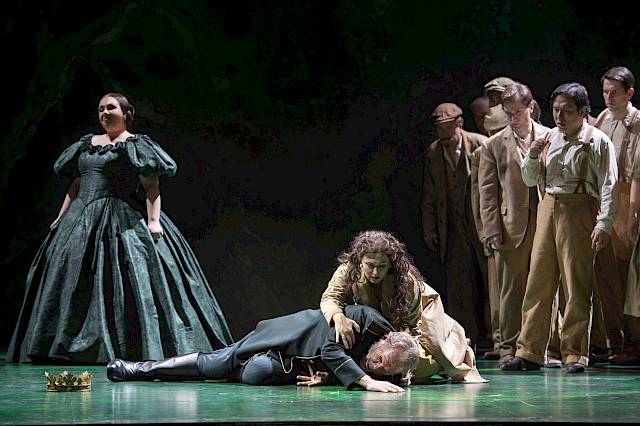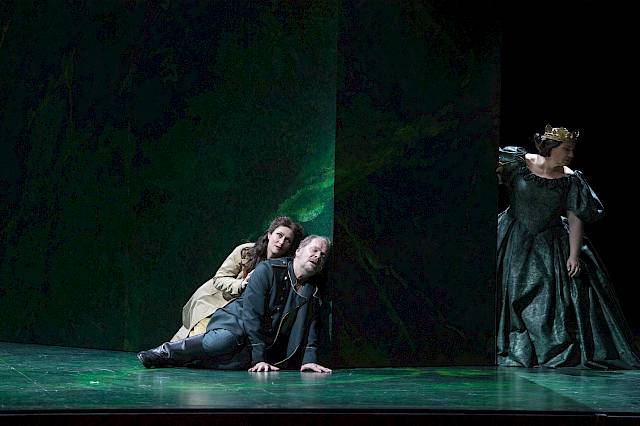Abstract
In «Va pensiero sull’ali dorate» – the famous prisoners’ chorus considered the centrepiece of Giuseppe Verdi’s Nabucco – the Hebrews, whose temple city of Jerusalem has been destroyed by the Babylonians, lament their fate. In exile, they are being held captive in Babylon, at the mercy of the despotic, megalomaniac King Nabucco. Against the background of this conflict between the Babylonians and the Hebrews in the sixth century BC, Verdi unfolds the drama of individual destinies, such as that of Abigaille, unhappily in love, who initially believes she is Nabucco’s daughter, only to discover that she is descended from a female slave. In this figure, Verdi created an operatic heroine who already reveals the entire individuality and inner turmoil of a strong Verdi character at an early stage of the Italian composer’s operatic oeuvre. No less fascinating is the figure of Nabucco, initially the megalomaniacal oppressor of the Hebrew people, who ultimately becomes a follower of Jehovah. As the result of a profound crisis caused by the death of his wife and two children and the failure of his previous opera, Un giorno di regno, by composing Nabucco, Verdi found his own dramatic idiom, for which he was celebrated at the première of the piece given at Milan’s La Scala in 1842. General Music Director Fabio Luisi will also be conducting the revival of this opera. Baritone Dalibor Jenis can be heard as Nabucco. For a really special gala performance, we have also been able to engage Plácido Domingo, who changed from the tenor to the baritone range some years ago, for the title role.





